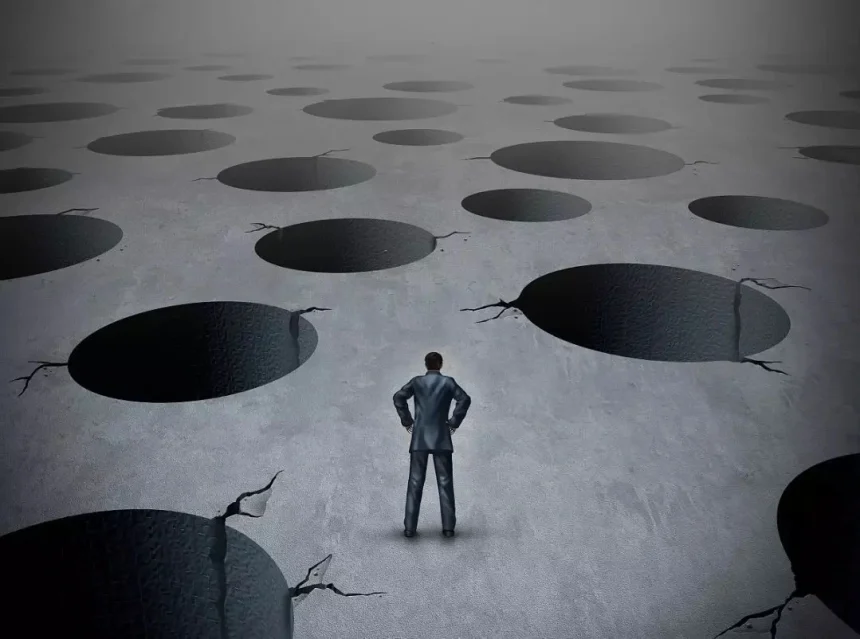When international students rent an apartment in Sydney, Australia, the most common type of flat is a student flat—often called an Apartment. Because the security of an Apartment is the best. The facilities are also excellent; even the advanced Apartment has a swimming pool, and most of the Apartment has an indoor unified garage downstairs.
Most student flats are accessible, close to the school, surrounded by pubs and bars where fast food is available. And not far from supermarkets and pharmacies. Renting a flat is easy and quick; you don’t need to post a post to find a roommate; in other words, look around for an internet company to set up a network. You can look at the apartment and pay for it, then move in with the bag.
However, despite so many advantages, there are still a lot of bad problems; the following is a summary of the most common problems and solutions.
Noisy Neighbours in Australia

This situation is quite common; some housemates day and night will be boisterous, especially young people, who may be more playful, affecting their rest; the Internet often causes people to transfer their contracts into student housing.
What to do :
In Australia, there are strict time limits for noise pollution in apartment buildings. The rules are different in each continent, but generally, in the afternoon, you are not allowed to disturb the neighbours; if there is still noise nuisance, you can:
Communicate directly (pay attention to communication skills);
Find the building property manager.

Call the police (the efficiency is very low, the police is too little)
Being Evicted by Your Landlord in Australia

In Australia, some of you may be evicted by your landlord, either because you didn’t follow the rules of renting or because your landlord is being unreasonable.
What to do:
In either case, the landlord must give two weeks’ notice to evict the tenant under the premise of the contract, and the landlord can not throw the tenant’s things directly out of the house. In such cases, it is essential to contact the relevant organisation, such as the Consumer Affairs Agency in Victoria, which, among other things, “mediates disputes between tenants and landlords”.
The Real Thing is not What it Looks Like

For many Australian newcomers, it’s easy to fall into this trap, looking at reviews and pictures on the internet and then booking a place, only to go to Australia and see that it’s not the same thing. The transport isn’t as convenient as it says it is.
What to do:
Make sure to see the house on the spot! You have to see the house on the spot! If you can’t see the room yourself, you can find a reliable brother or sister in Australia to help you look at it, or if it’s too much trouble, you can just rent it short-term and talk about it after you’ve been there.
Noisy Construction in Australia

There are more and more new flats in Australia; if you live in the CBD, it is inevitable that the construction of the building next door, generally speaking, the construction company of high-rise flats are very standardised and, at the same time, will be strictly adhered to, and the Australians will not be so diligent to get up early to start work. Generally, it won’t bother you, just if you have to sleep, it’s torturous!
What to do:
Either get up early or move!
Poor Indoor Air Circulation
Many new flats in Australia now have windows and balcony doors, and they must be wholly unventilated and have poor air circulation. Especially in the bathroom, the humidity is heavy, and mould is easy to grow, so you will get sick quickly in the long run.
What to do:
The bathroom and shower room design requirements of the flat usually have ventilation fans; turning on more during the day is recommended, and it is only about $10 more monthly in electricity costs.
Burglary in Australia

The best thing about living in a flat is security. Many flats have access control and even floor access control, but the possibility of burglary cannot be ruled out.
What to do:
Always lock the door! Lock the door! Lock the door!
Security Deposit Fraud

Deposit scamming is not a new thing in the Australian rental circle; generally speaking, they have two kinds of operation:
They are overcharging the security deposit. In Australia, the security deposit is usually four weeks’ rent, but some landlords will make you pay more.
I am not returning the deposit on the grounds of damaged items.
What to do:
Before renting a property, you must sign a tenancy agreement with your landlord, who will then only need to pay the deposit to the Residential Tenancy Deposits Authority provides you with a completed Deposit Control Form for you to sign.
Also, always remember that it is best to transfer the money; if you must pay in cash, ask the landlord for a receipt to have proof of your transfer and evidence of what will happen.
FAQ
Renting in Australia can be a wonderful experience, but it also comes with potential challenges. Some of the most common pitfalls include not understanding the lease agreement, failing to inspect the property thoroughly, not reporting issues promptly, misunderstanding your rights and obligations, overlooking rental increases, neglecting renters insurance, and dealing with difficult landlords.
Understanding your lease agreement is paramount. It’s a legally binding contract that outlines your rights and responsibilities as a tenant. Not fully understanding its terms could lead to unnecessary disputes or legal issues.
A detailed inspection helps you identify any existing damages or issues, preventing you from being held responsible for them later. This proactive step can save you from unexpected costs and disputes at the end of your tenancy.
Reporting issues promptly is key. If you find a problem, notify your landlord or property manager immediately in writing. Delaying this process may exacerbate the problem and potentially put you in a position where you’re held responsible for further damage.
As a tenant, you can live in a safe, clean, and well-maintained property. You also have the right to privacy and quiet enjoyment of the premises. On the flip side, you must pay rent on time, keep the property clean, report damages, and abide by the terms of your lease agreement.







